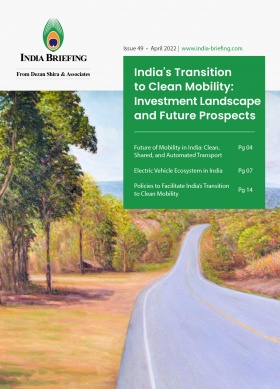India to Implement Fuel Consumption Standards for All Vehicles from April 1, 2023
India has proposed fuel consumption standards (FCS) for all vehicles, including light, medium, and heavy-duty motor vehicles, which are either manufactured or imported for sale in India. These norms are proposed to be implemented from April 1, 2023. The government has invited stakeholder comments for the draft policy till July 30, 2022.
India recently announced its plans to implement fuel consumption standards (FCS) for light, medium, and heavy-duty motor vehicles under various categories that are either manufactured in or imported by India. Prior to this notification, FCS compliance was only applicable to vehicles under the M1 category (motor vehicle used for the carriage of passengers, comprising not more than eight seats in addition to the driver’s seat).
As per the draft notification issued by the Ministry of Road Transport and Highways (MoRTH) on July 1, 2022, this compliance will be applicable from April 1, 2023. The draft policy notification seeks to amend Rule 115 G of the Central Motor Vehicle Rules (CMVR), 1989 to implement the proposed changes.
The government has invited comments from stakeholders within 30 days from the date of the notification, that is, till July 30.
The move, if it goes through, will expand the ambit of vehicles subject to FCS compliance. The objectives are twofold and linked – reduce pollution levels in the country and introduce more fuel-efficient vehicles to the Indian market.
What are India’s fuel consumption standards?
India’s fuel consumption standards relate to the corporate average fuel efficiency, that is, the average of the standard fuel consumption of all vehicles sold by the manufacturers in the fiscal year, and not according to the fuel consumption of an individual vehicle model.
The fuel consumption is measured under standard conditions at nationally accredited labs over the national driving cycle.
These standards are expected to reduce fuel consumption by 22.97 million tons by 2025.
India first introduced FCS norms in 2015 and implemented them for vehicles in the M1 category from FY 2018. With the latest notification, auto makers supplying to the Indian market should note that regulators are serious about extending the standards to all categories of vehicles.
Which categories of passenger vehicles must comply with fuel consumption standards in India?
M1 category vehicles with GVW of less than or equal to 3.5 tons
Every manufacturer or importer of M1 motor vehicles in India has had to comply with FCS norms since April 1, 2017.
The M1 category includes vehicles which are type approved under Rule 126 of CMVR 1989, with at least four wheels, other than quadricycles. These vehicles use petrol, diesel, liquefied petroleum gas, or compressed natural gas and are used for carriage of passengers and their luggage and comprising not more than nine seats (including driver’s seat) with a gross vehicle weight (GVW) of up to 3.5 tons.
They may either be manufactured or imported for sale in India.
M2, M3, and N2 category vehicles with GVW between 3.5 – 12 tons
Every manufacturer or importer of M2, M3, and N2 vehicles, except Tippers, which are a type approved under Rule 126, with GVW between 3.5 – 12 tons, manufactured or imported for sale in India, shall be tested for Constant Speed Fuel Consumption standard and comply with the fuel consumption target from April 1, 2023.
The procedure for Conformity of Production (CoP) Procedure for verifying compliance to Constant Speed Fuel Consumption Norms shall be outlined in Automotive Industry Standard 149.
M3 and N3 category vehicles with GVW greater than or equal to 12 tons
Every manufacturer or importer of M3 and N3 vehicle category, except Tippers, with GVW of more than or equal to 12 tons and manufactured or imported for sale in India shall be tested for Constant Speed Fuel Consumption standard and comply with the fuel consumption target from April 1, 2023.
About Us
India Briefing is produced by Dezan Shira & Associates. The firm assists foreign investors throughout Asia from offices across the world, including in Delhi and Mumbai. Readers may write to india@dezshira.com for more support on doing business in in India.
We also maintain offices or have alliance partners assisting foreign investors in Indonesia, Singapore, Vietnam, Philippines, Malaysia, Thailand, Italy, Germany, and the United States, in addition to practices in Bangladesh and Russia.
- Previous Article RBI Notifies New Framework to Enable International Trade Settlement in Indian Rupee
- Next Article NRIs in Line for High Office in the UK Government







